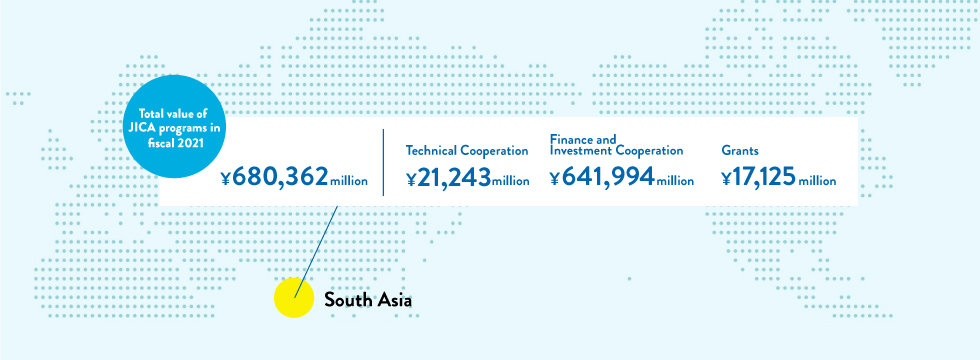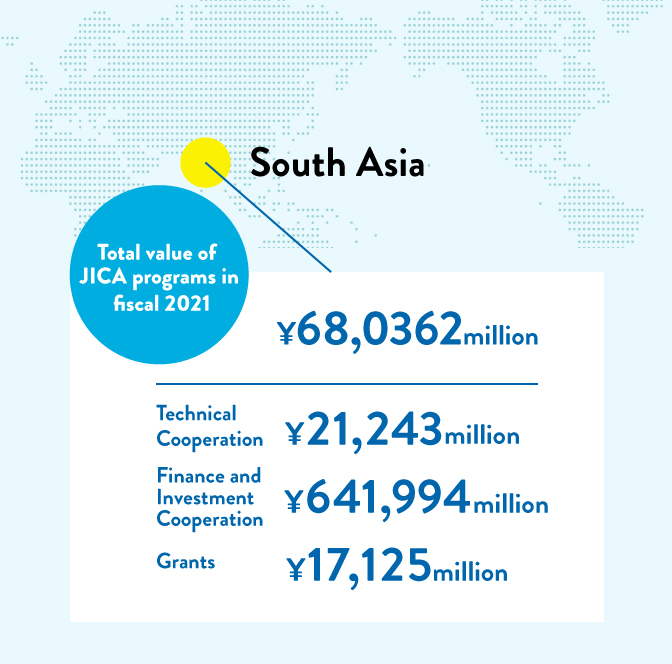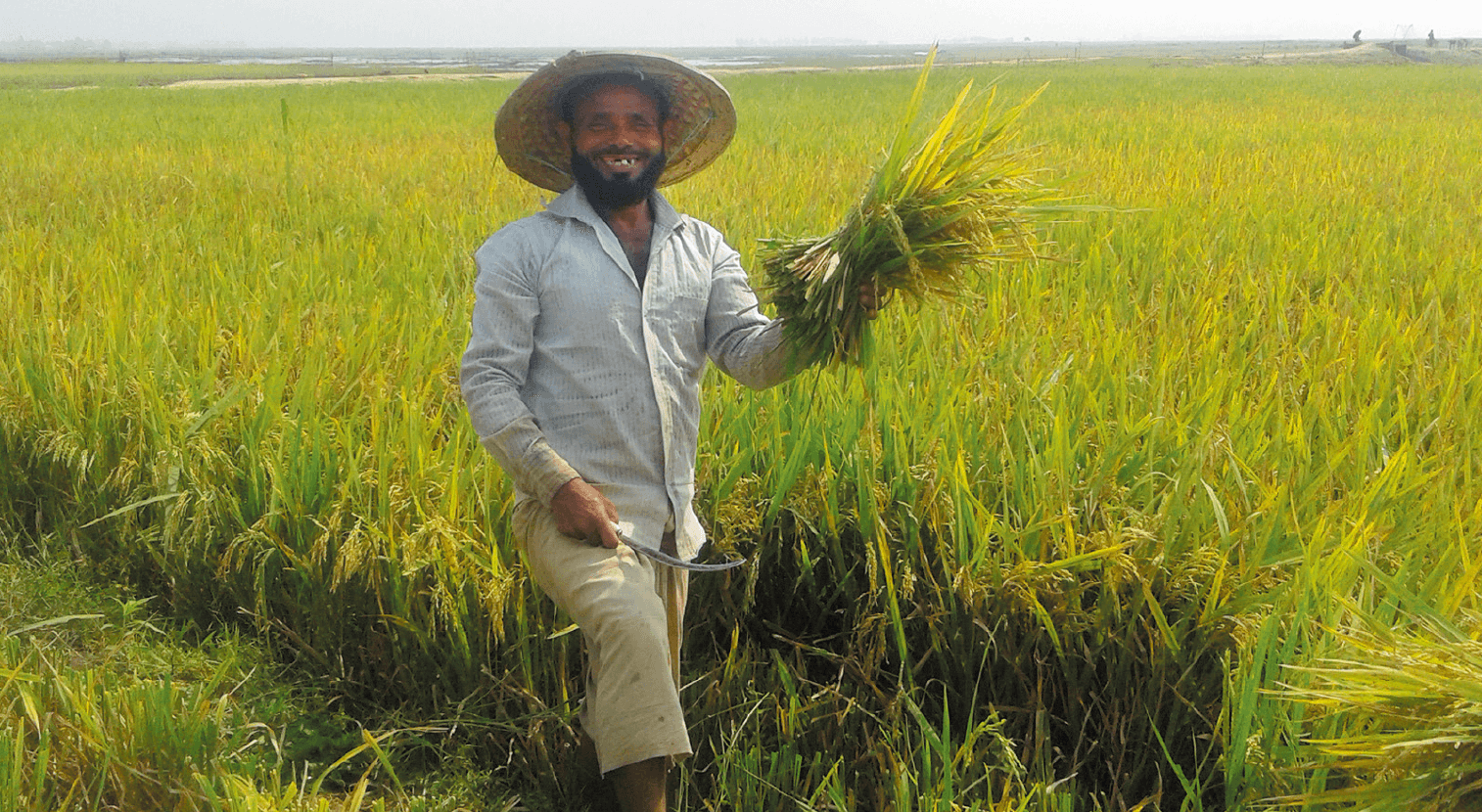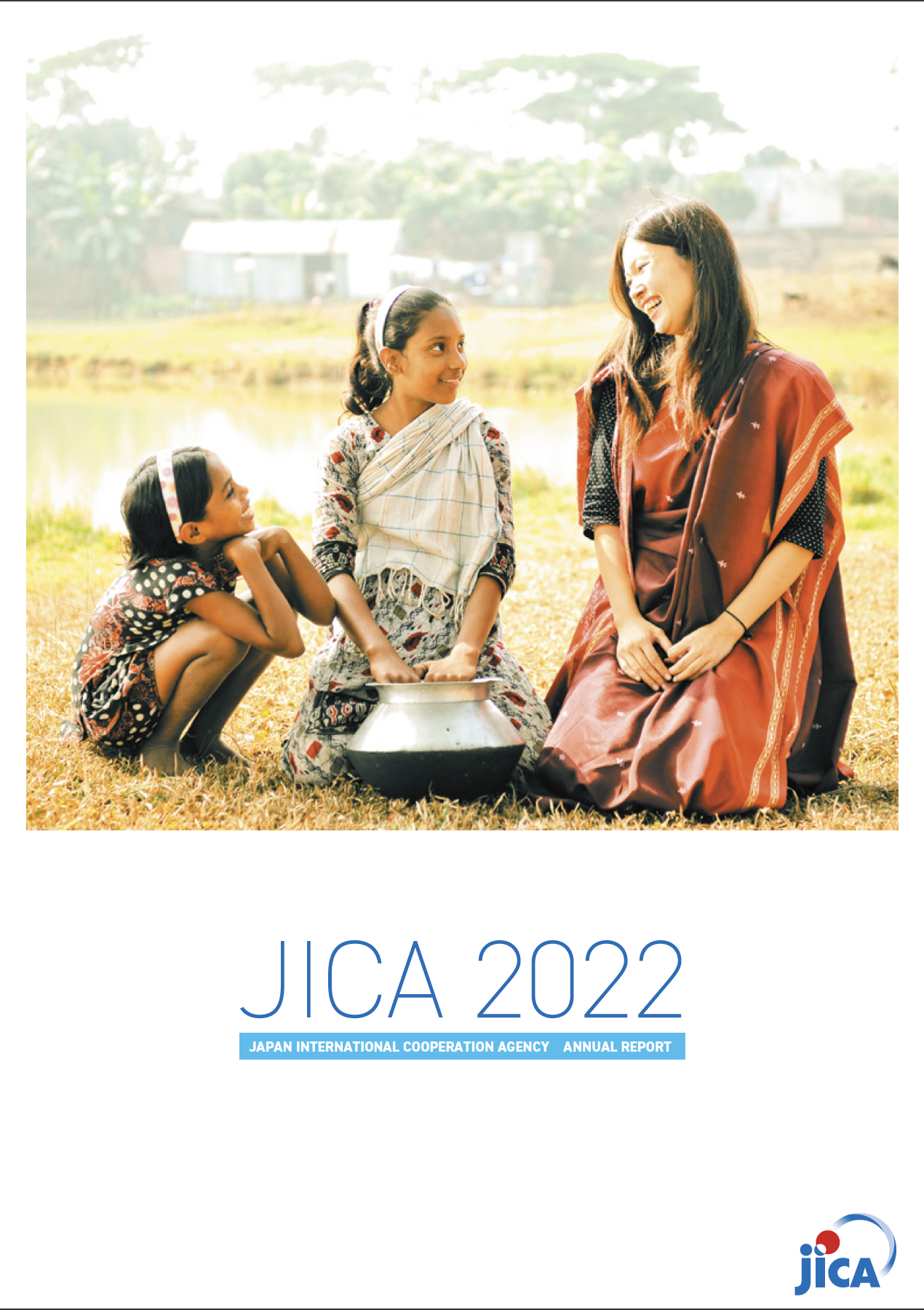approach
South Asia


Building Resilient Social Systems toward Regional Stability and Development
Economic recovery and unstable economic and social conditions
South Asia is a region of geopolitical importance linking Southeast Asia with the Middle East and Africa. The region, home to 1.8 billion people, accounts for one-quarter of the global population. It has markedly expanding consumer and labor markets, with young people under age 25 making up about a half the regional population.*1 Tapping into the power of this young generation to sustain economic development requires human resources and infrastructure. Meanwhile, with the number of people living in absolute poverty in the region, amounting for about 220 million or one-third of the world’s total,*2 there have been calls for building inclusive (meaning “leaving no one behind”), resilient, and sustainable societies as stipulated in the SDGs.
Despite waves of COVID-19 infections, countries in the region relaxed related restrictions, such as by lifting COVID-19–related curfews or easing travel restrictions, and, as a result, the regional economy grew 7% in 2021.*3 Nevertheless, global price rises amid recovery from the pandemic are making it difficult to steer their economies successfully.In fact, some economies in the region are deteriorating rapidly, giving rise to social unrest. In addition, the region, vulnerable to natural disasters, has been impacted by climate change.
Cooperation with a focus on building inclusive and resilient societies
JICA has been proactively delivering cooperation to build inclusive and resilient societies that can cope with the above challenges.
In fiscal 2021, JICA placed emphasis on responding to the pandemic as in the previous year, helping to strengthen health services in both physical and nonphysical aspects as well as offering budget support through emergency loans. JICA also focused on cooperation for tackling climate change, including afforestation and disaster risk reduction. With a flexible combination of various forms of cooperation, JICA also worked on a range of other issues such as (1) developing infrastructure; (2) improving the investment environment; (3) improving access to basic human needs; (4) securing regional peace and stability; (5) strengthening intra- and interregional connectivity; and (6) developing human resources through the JICA Chair and the acceptance of foreign students in Japan.Going forward, JICA will also continue to work on digital transformation (DX) to further enhance its cooperation.
For Afghanistan, JICA supported the Afghan people related to JICA’s activities to flee the country after the Taliban took control of Kabul in August 2021. While continuing its support, JICA is exploring other possibilities of assistance in meeting a wide range of humanitarian needs in cooperation with international organizations in line with Japanese government policies.
The year 2022 is designated as the “Japan–Southwest Asia Exchange Year.”*4 In commemoration, JICA is accelerating its information dissemination efforts to further deepen ties with countries in the region.
*1 United Nations, “World Population Prospects 2019.”*2 Calculated based on data from World Bank, “Poverty and Shared Prosperity 2018: Piecing Together the Poverty Puzzle.”
*3 World Bank, “Global Economic Prospects, January 2022.”
*4 Designated by the Japanese government to commemorate the milestone anniversaries of establishing diplomatic ties with the countries in the region, including the 70th anniversary in relation to India, Pakistan, and Sri Lanka.
Total value of JICA programs by country
 Note)Totals may not add up due to rounding.
Note)Totals may not add up due to rounding.
 Bangladesh: Situated across a delta of three large rivers, Bangladesh suffers inundation every year; it is one of the most vulnerable countries to precipitation change due to climate change. JICA is working on improving the livelihoods of local farmers in Haor, a low-lying wetland in the country, through such means as embankment construction and agricultural promotion, under the Haor Flood Management and Livelihood Improvement Project.
Bangladesh: Situated across a delta of three large rivers, Bangladesh suffers inundation every year; it is one of the most vulnerable countries to precipitation change due to climate change. JICA is working on improving the livelihoods of local farmers in Haor, a low-lying wetland in the country, through such means as embankment construction and agricultural promotion, under the Haor Flood Management and Livelihood Improvement Project.

JICA Annual Report 2022